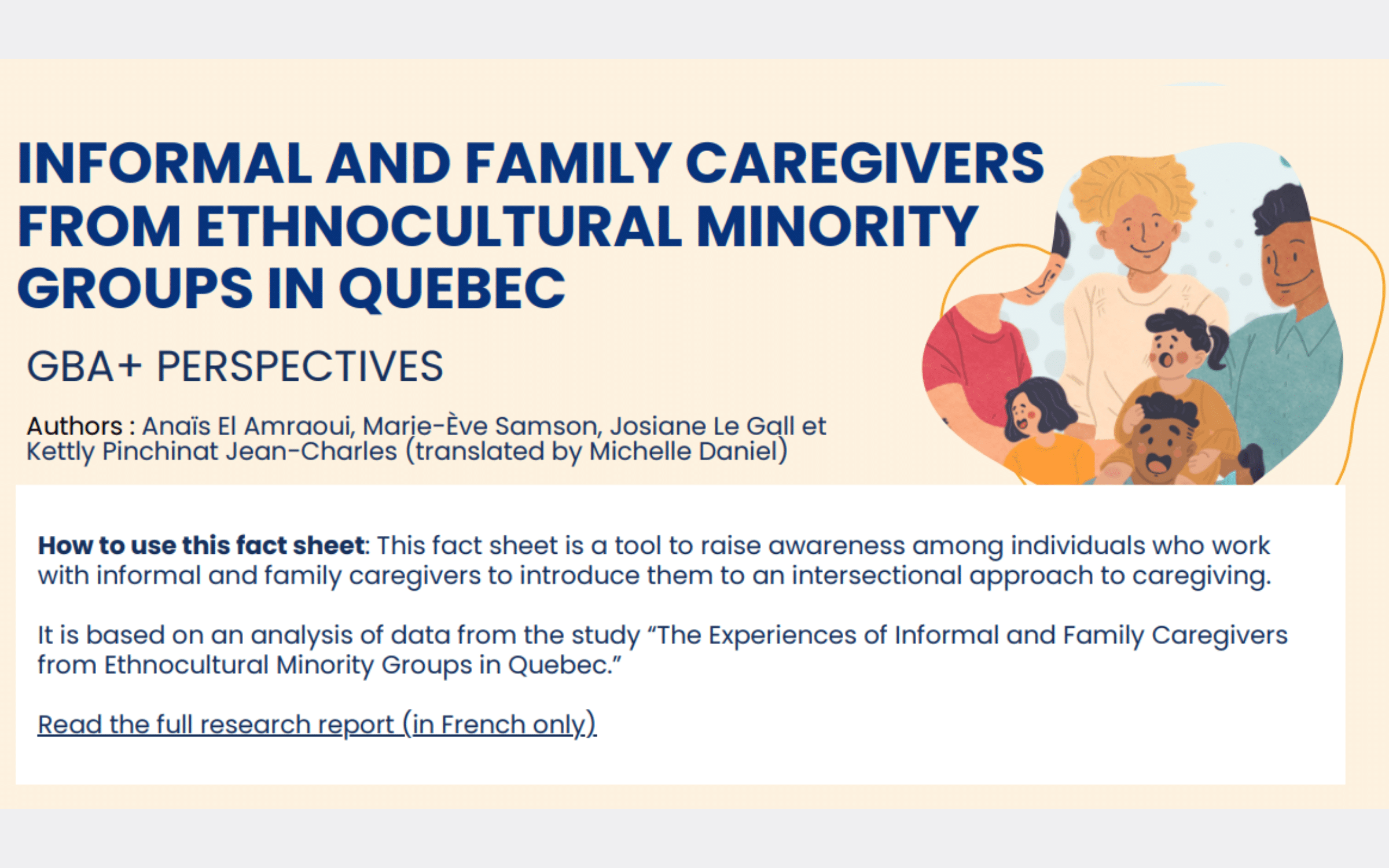This fact sheet (6 pages) introduces an intersectional approach to caregiving for stakeholders and professionals who work with caregivers.
Drawing on both statistical data and the experiences of caregivers from ethnocultural minority groups, it presents a gender-based analysis (GBA) that also considers other intersecting identity and social factors (GBA+) in a caregiving context. Recommendations for applying GBA+ in professional practice are also provided.
The fact sheet is based on data from the SHERPA University Institute study (in French), Les expériences de personnes appartenant à un groupe ethnoculturel minoritaire qui prennent soin d’un·e proche au Québec.
Like to know more?
See the publication on the organization’s website to access other SHERPA projects about ethnocultural and linguistic minority caregivers in Quebec.


